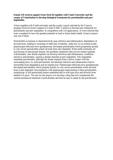Omnio AB receives support from SweLife together with Umeå University and the county of Västerbotten to develop biological treatments for periodontitis and peri-implantitis
Omnio together with Umeå university and the county council selected by the Vinnova program SweLife receive support of a total of SEK 3 million to develop new treatments for periodontitis and peri-implantitis. In competition with 120 applications, 16 were selected that were considered to have the greatest potential to lead to future better health. Omnio's project was one of these.
Periodontitis in humans is characterized by gum infection and inflammation, degradation of alveolar bone, leading to loosening of teeth and, eventually, teeth lost. In our animal model, plasminogen-deficient mice spontaneously developed periodontitis which progressed quickly to very severe periodontitis where alveolar bone also degraded. When teeth eventually are lost because of periodontal disease, the prosthetic treatment often involve dental implants. Unfortunately, also dental implants can develop infectious and inflammatory conditions similar to periodontitis, causing a disease denoted as peri-implantitis. Peri-implantitis resembles periodontitis, although the dental implant forms a direct contact with the surrounding bone. As with periodontitis, the bacterial infection and inflammation lead to irreversible bone degradation and an implant loss. Plasminogen-deficient mice spontaneously developed periodontitis which progress quickly to very severe periodontitis where alveolar bone is also degraded. Reconstitution with plasminogen leads healing of their periodontitis: morphology of soft periodontal tissues resembled that in wild type mice and alveolar bone started to re-grow. The aim for the project is to develop a drug that will complement the current mechanical treatment of periodontitis and thus be easy to adopt by the practitioners.
Om Omnio
Prenumerera
Få löpande information från Omnio via e-post.
